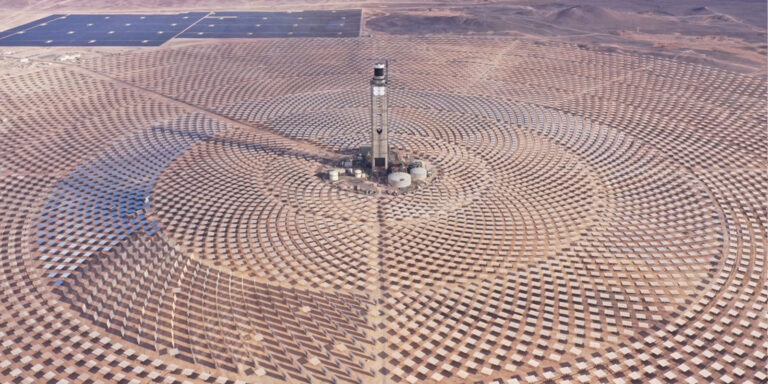Introduction
The renewable energy sector is continuously evolving, and Latin America has taken a giant leap forward with Cerro Dominador, the first solar thermal power plant in the region. Located in the Atacama Desert of Chile, the project aims to provide clean energy to over 380,000 households and reduce CO2 emissions by more than 400,000 tons per year. This article will explore the project’s background, how it works, and its potential impact on the renewable energy landscape in Latin America.
A Brief History of Cerro Dominador
Cerro Dominador was initially launched in May 2014 by Spanish energy company Abengoa. However, due to financial difficulties, the project was on the verge of collapse in 2016. American company EIG Global Energy Partners stepped in, acquiring 100% of the initiative and revitalizing it. Abengoa remained as a contractor, in a consortium with Spanish firm Acciona. The project secured over $800 million in financing, with contributions from Deutsche Bank, BTG Pactual, Santander, Natixis, KFW, among other international banks.
Cerro Dominador: How It Works
Cerro Dominador uses 10,600 mirrors, known as heliostats, spread across a 3-kilometer diameter area to reflect sunlight toward a 250-meter high concrete tower. The solar energy is concentrated on a receiver at the top of the tower, which heats up a mixture of molten salts. These salts, which can reach temperatures of up to 565°C, are circulated through heat exchangers, producing steam that drives turbines and generates electricity.
The plant has the world’s largest storage of molten salts, thanks to a purchase of 46,000 tons from SQM, a Chilean mining company. This storage capacity allows the plant to operate continuously, providing energy both day and night.
The Impact and Future of Cerro Dominador
Cerro Dominador has already signed agreements with various companies, including Copec, Grupo Saesa, and PF Alimentos, to provide them with clean energy. The power plant has the potential to significantly contribute to Chile’s decarbonization efforts, helping the country transition to renewable energy sources and achieve carbon neutrality.
The Cerro Dominador project has paved the way for further solar thermal power plants in the region. The company is already planning its next project, Likana, which is expected to be the second solar thermal power plant in Latin America. With three solar concentration towers and a total capacity of 450-600 MW, Likana will be one of the largest renewable energy facilities in the world, further reducing CO2 emissions by 1.2 million tons per year.
The Role of Cerro Dominador in Renewable Energy Expansion
The success of Cerro Dominador demonstrates the potential for solar thermal power plants in Latin America, particularly in areas like the Atacama Desert, which has the highest solar radiation levels globally. By embracing this technology, the region can significantly reduce its reliance on fossil fuels and pave the way for a more sustainable future.
In conclusion, Cerro Dominador represents a significant milestone in Latin America’s renewable energy landscape. Its success has the potential to spur further investment in solar thermal power plants throughout the region, contributing to a cleaner, more sustainable future for all.

